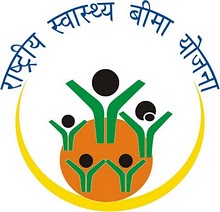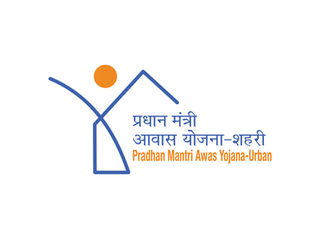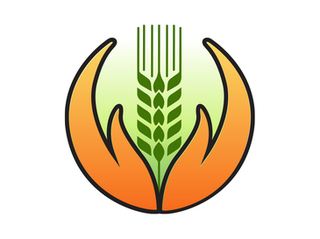India has a robust social security legislative framework governing social security, encompassing multiple labour laws and regulations. These laws govern various aspects of social security, particularly focusing on the welfare of the workforce. The primary objective of these measures is to foster sound industrial relations, cultivate a high-quality work environment, ensure legislative compliance, and mitigate risks such as accidents and health concerns. Moreover, social security initiatives aim to safeguard against social risks such as retirement, maternity, healthcare and unemployment while tax-funded social assistance aims to reduce inequalities and poverty. The Directive Principles of State Policy, enshrined in Part IV of the Indian Constitution reflects that India is a welfare state. Food security to all Indians are guaranteed under the National Food Security Act, 2013 where the government provides highly subsidised food grains or a food security allowance to economically vulnerable people. The system has since been universalised with the passing of The Code on Social Security, 2020. These cover most of the Indian population with social protection in various situations in their lives.

The Public Distribution System (PDS) is a food security system that was established by the Government of India under the Ministry of Consumer Affairs, Food and Public Distribution to distribute food and non-food items to India's poor at subsidised rates. Major commodities distributed include staple food grains, such as wheat, rice, sugar and essential fuels like kerosene, through a network of fair price shops established in several states across the country. Food Corporation of India, a government-owned corporation, procures and maintains the PDS.
Uttar Pradesh food grain scam took place between years 2002 and 2010, in Uttar Pradesh state in India, wherein food grain worth ₹350 billion (US$4.0 billion), meant to be distributed amongst the poor, through Public Distribution System (PDS) and other welfare schemes like Antyodaya Anna Yojana (AAY), Jawahar Rozgar Yojana and Midday Meal Scheme for Below Poverty Line (BPL) card holders, was diverted to the open market. Some of it was traced to the Nepal and Bangladesh borders, as in 2010 security forces seized Rs 11.7 million worth of foodgrains like paddy and pulses being smuggled to Nepal, another Rs 6062,000 worth of grains were confiscated on the Indo-Bangladesh border.

Rashtriya Swasthya Bima Yojana is a government-run health insurance programme for the Indian poor. The scheme aims to provide health insurance coverage to the unrecognised sector workers belonging to the BPL category and their family members shall be beneficiaries under this scheme. It provides for cashless insurance for hospitalisation in public as well as private hospitals. The scheme started enrolling on April 1, 2008 and has been implemented in 25 states of India. A total of 36 million families have been enrolled as of February 2014. Initially, RSBY was a project under the Ministry of Labour and Employment. Now it has been transferred to Ministry of Health and Family Welfare from April 1, 2015

Pradhan Mantri Gramin Aawas Yojana is a social welfare programme under the Ministry of Rural Development, Government of India, to provide housing for the rural poor in India. A similar scheme for urban poor was launched in 2015 as Housing for All by 2022. The scheme was officially launched by Prime Minister Narendra Modi on 20 November 2016 from Agra.

Pradhan Mantri Matru Vandana Yojana (PMMVY), previously known as the Indira Gandhi Matritva Sahyog Yojana, is a maternity benefit program run by the government of India. It was originally launched in 2010 and renamed in 2017. The scheme is implemented by the Ministry of Women and Child Development. It is a conditional cash transfer scheme for pregnant and lactating women of 19 years of age or above for the first live birth.

The National Food Security Act 2013, also known as Right to Food Act, is an Indian Act of Parliament which aims to provide subsidized food grains to approximately two thirds of the country's 1.4 billion people. It was signed into law on 12 September 2013, retroactive to 5 July 2013.

Ration cards are an official document issued by state governments in India to households that are eligible to purchase subsidised food grain from the Public Distribution System under the National Food Security Act (NFSA). They also serve as a common form of identification for many Indians.
Pradhan Mantri Suraksha Bima Yojana is a government-backed accident insurance scheme in India. It was originally mentioned in the 2015 budget speech by Finance Minister Arun Jaitley in February 2015. It was formally launched by the Prime Minister Narendra Modi on 8 May in Kolkata.
Pradhan Mantri Jeevan Jyoti Bima Yojana is a Government-backed life insurance scheme in India. It was originally mentioned in the year 2015 budget speech by the then-Finance Minister, Arun Jaitley in February 2015. It was formally launched by Prime Minister Narendra Modi on 9 May 2015 in Kolkata. As of May 2015, only 20% of India's population has any kind of insurance, this scheme aims to increase the number.

Atal Pension Yojana, formerly known as Swavalamban Yojana is a government-backed pension scheme in India, primarily targeted at the unorganised sector. It was mentioned in the year 2015 Budget speech by the Finance Minister Arun Jaitley. It was launched by Prime Minister Narendra Modi on 9 May 2015 in Kolkata. Its main objective is to help towards economic security of those people who become depressed after their working age and take retirement from professional life.

Pradhan Mantri Awas Yojana (PMAY) is a credit-linked subsidy scheme by the Government of India to facilitate access to affordable housing for the low and moderate-income residents of the country. It envisaged a target of building 2 crore (20 million) affordable houses by 31 March 2022. It has two components: Pradhan Mantri Awas Yojana(Urban) (PMAY-U) for the urban poor and Pradhan Mantri Awaas Yojana (Gramin) (PMAY-G and also PMAY-R) for the rural poor, the former administered by Ministry of Housing and Urban Affairs and the latter by Ministry of Rural Development. This scheme converges with other schemes to ensure that houses have a toilet, Saubhagya Scheme for universal electricity connection, Ujjwala Yojana LPG connection, access to drinking water and Jan Dhan banking facilities, etc.

The Pradhan Mantri fasal bima yojana (PMFBY) launched on 18 February 2016 by Prime Minister Narendra Modi is an insurance service for farmers for their yields. It was formulated in line with One Nation–One Scheme theme by replacing earlier two schemes Agricultural insurance in India#National Agriculture Insurance Scheme and Modified National Agricultural Insurance Scheme by incorporating their best features and removing their inherent drawbacks (shortcomings). It aims to reduce the premium burden on farmers and ensure early settlement of crop assurance claim for the full insured sum.

Pradhan Mantri Ujjwala Yojana was launched by Prime Minister of India Narendra Modi on 1 May 2016 to distribute 50 million LPG connections to women of Below Poverty Line (BPL) families. A budgetary allocation of ₹80 billion (US$920 million) was made for the scheme. The scheme was replaced by the Ujjwala Yojana 2.0 in 2021. Although the scheme has expanded access to clean cooking technologies, the use of polluting fuels remains common, particularly in rural India.

Pradhan Mantri Kaushal Vikas Yojana (PMKVY) or otherwise known as Pradhan Mantri Youth Training Program is a skill development initiative scheme of the Government of India for recognition and standardisation of skills.
Pradhan Mantri Garib Kalyan Yojana, 2016 (PMGKY) is a scheme launched by the Narendra Modi led Government of India in December 2016 on the lines of the Income declaration scheme, 2016 (IDS) launched earlier in the year. A part of the Taxation Laws Act, 2016, the scheme provides an opportunity to declare unaccounted wealth and black money in a confidential manner and avoid prosecution after paying a fine of 50% on the undisclosed income. An additional 25% of the undisclosed income is invested in the scheme which can be refunded after four years, without any interest.
Saubhagya Scheme or Pradhan Mantri Sahaj Bijli Har Ghar Yojana was an Indian government project to provide electricity to some households. The project was announced in September 2017 by Prime Minister Narendra Modi, who said that the aim was to complete the electrification process by December 2018. Certain households identified via the Socio-economic and Caste Census (SECC) of 2011 will be eligible for free electricity connections, while others will be charged Rs. 500. On 16 November 2017, the government launched a website saubhagya.gov.in to disseminate information about the scheme. The total outlay of the project is Rs. 16, 320 crore while the Gross Budgetary Support (GBS) is Rs. 12,320 crore. The beneficiary household will get One LED lights, one DC power plug. It also includes the Repair and Maintenance of Meter Only (R&M) for 5 years. The scheme was closed in March 2022 since the target of 100% electrification was met.
Biju Swasthya Kalyan Yojana is a universal health coverage scheme launched by Chief Minister of Odisha, Naveen Patnaik. The program extends coverage to approximately 70 lakh families, with the state government allocating a budget of 250 crore rupees. Services:
- Free health services are available in all state government health care facilities, starting from the subcenter level up to the district headquarter hospital level, with Swasthya Mitras deployed at help desk.
- Annual health coverage of Rs 5 lakhs per family and 7 lakhs per female members of the family.
Pradhan Mantri Kisan Samman Nidhi is an initiative by the government of India that give farmers up to ₹6,000 (US$69) per year as minimum income support. The initiative was announced by Piyush Goyal during the 2019 Interim Union Budget of India on 1 February 2019. The scheme has cost ₹75,000 crore per annum and came into effect December 2018.










